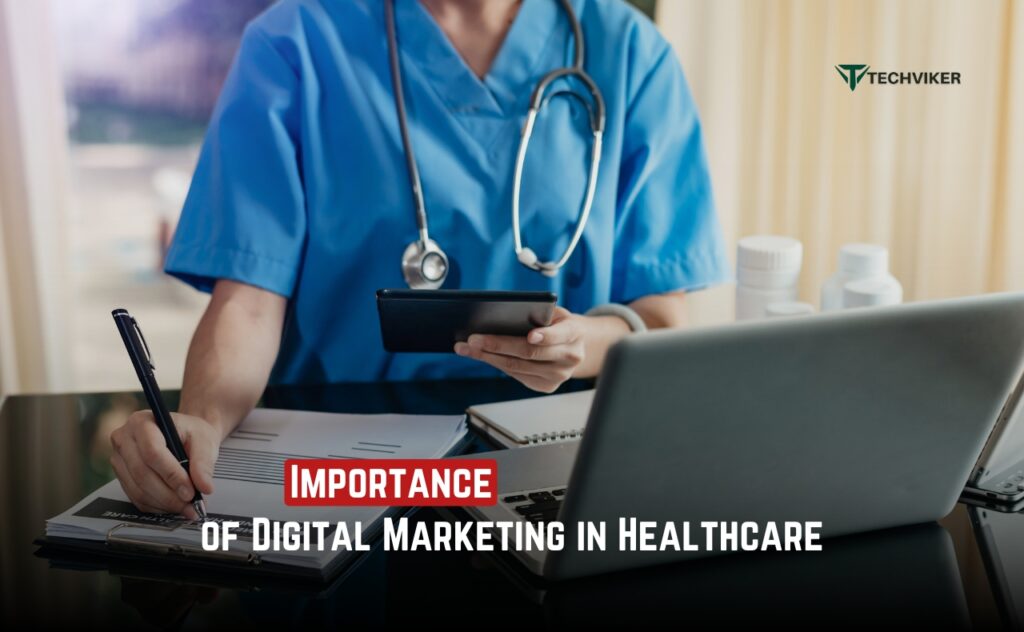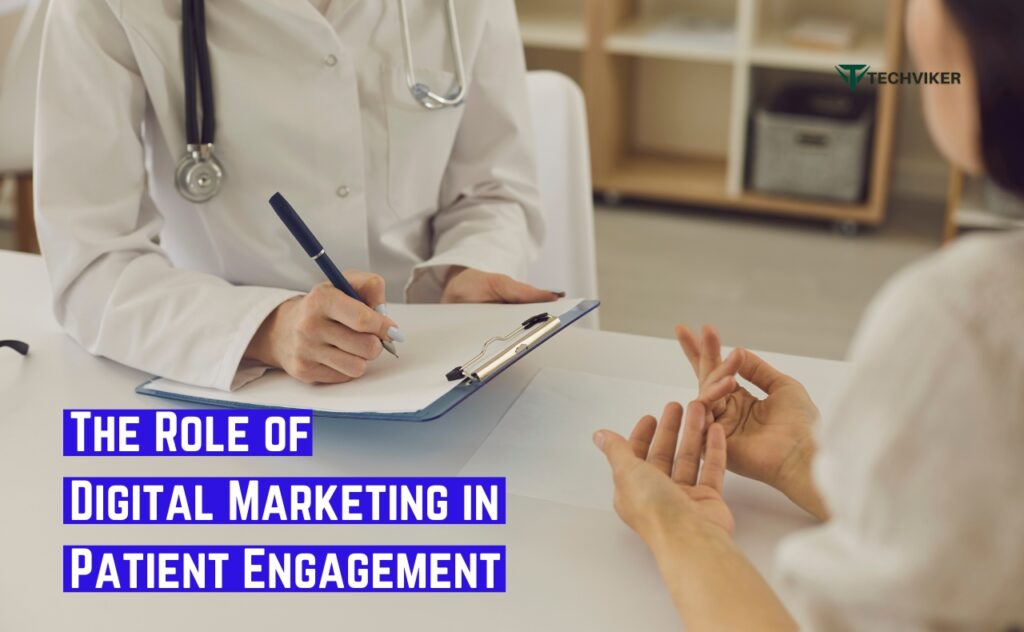Importance of Digital Marketing in Healthcare

In an increasingly digital world, the healthcare industry is becoming more aware of the importance of modern marketing strategies. While patient care remains the primary focus of healthcare organizations, the changes in consumer behavior demand that these organizations invest in healthcare digital marketing. This article explores the importance of digital marketing in healthcare, the strategies involved, and how they can enhance patient engagement and care outcomes.
Understanding Healthcare Digital Marketing
Healthcare digital marketing encompasses various online strategies to connect with patients and enhance their experiences. Traditionally, healthcare marketing relied heavily on print media, radio, and television, with limited interactivity or real-time feedback. However, with the rise of the internet, patients have become more proactive in seeking healthcare information. A recent study indicates that 77% of patients conduct online research before booking an appointment, highlighting the need for healthcare providers to establish a robust online presence.
As patients increasingly rely on digital resources, healthcare organizations must adapt their marketing strategies. This shift not only helps attract new patients but also fosters ongoing engagement with existing ones, ultimately improving patient care outcomes.
The Role of Digital Marketing in Patient Engagement

Today’s healthcare consumers are well-informed and expect transparency and accessibility from their providers. They are more likely to choose healthcare services based on online reviews, social media interactions, and website usability. This shift in patient behavior underscores the importance of healthcare digital marketing. now day’s its too much important to find best local SEO agency for you business
Engaging Patients Through Multiple Channels
- Search Engine Optimization (SEO): Effective SEO practices ensure that healthcare organizations appear prominently in search engine results. Implementing local SEO near me strategies can help attract patients searching for services in their area. Research shows that search engines drive three times more visitors to hospital websites than other sources, making SEO a critical component of any digital marketing strategy.
- Content Marketing: Providing valuable, informative content helps build trust and authority in the healthcare sector. Blog posts, articles, and patient testimonials can educate patients on various health topics, making it easier for them to make informed decisions about their care. Video content, in particular, has proven effective in engaging patients, with studies indicating that video on landing pages can boost conversions by up to 80%.
- Social Media Engagement: Social media platforms offer healthcare organizations a unique opportunity to engage with patients. By participating in community discussions and sharing relevant health information, organizations can foster a sense of community and trust. Furthermore, a strong social media presence can significantly influence patients’ decisions, as 57% of consumers report that social media impacts their choice of healthcare providers.
- Email Marketing: Despite the rise of new communication channels, email marketing remains a valuable tool for healthcare organizations. Targeted email campaigns can deliver personalized health tips, reminders, and educational content directly to patients. By optimizing emails for mobile devices and ensuring compliance with privacy regulations, healthcare marketers can enhance patient engagement and drive action.
Importance of Digital Analytics for Marketing
Effective digital analytics for marketing is vital in assessing the success of various campaigns and strategies. By tracking metrics such as website traffic, social media engagement, and conversion rates, healthcare organizations can make informed decisions and optimize their marketing efforts.
Utilizing tools like Google Analytics allows marketers to gather insights on user behavior while adhering to HIPAA regulations. For example, healthcare marketers can use anonymized data to understand the demographics of their audience, enabling them to tailor content that resonates with specific patient segments. This focus on data-driven SEO and SMM marketing ensures that resources are allocated effectively and that campaigns are continuously improved.
Strategies for Successful Healthcare Digital Marketing

To effectively implement healthcare digital marketing, organizations must adopt various strategies tailored to their specific needs and audiences. Here are several key tactics:
- Optimize for Local SEO: Patients frequently search for healthcare services in their vicinity. By implementing local SEO near me strategies, healthcare providers can increase visibility in local searches. This includes creating Google My Business listings, incorporating local keywords, and encouraging satisfied patients to leave reviews.
- Leverage Video Marketing: Video content can demystify complex medical concepts, making healthcare information more accessible. Creating informative videos on procedures, patient testimonials, or health tips can establish trust and encourage potential patients to choose your services.
- Utilize Personalization: Personalizing marketing efforts based on patient data can significantly enhance engagement. By understanding patient preferences and behaviors through an HCRM (Healthcare Customer Relationship Management) platform, organizations can deliver targeted content that meets individual needs.
- Focus on Mobile Optimization: With over half of all web searches conducted on mobile devices, healthcare websites must be mobile-friendly. Ensuring that sites load quickly and provide an easy navigation experience on smartphones can capture and retain patient interest.
- Engage with Analytics: Regularly reviewing digital marketing analytics is crucial for refining strategies. By analyzing which campaigns drive traffic and conversions, healthcare marketers can make data-backed decisions to enhance their marketing efforts continuously.
FAQs on Digital Marketing in Healthcare
1. What is healthcare digital marketing?
Healthcare digital marketing refers to the use of online strategies and tools to promote healthcare services and engage with patients. This includes practices like search engine optimization (SEO), content marketing, social media engagement, and email marketing.
2. Why is digital marketing important for healthcare organizations?
Digital marketing is crucial for healthcare organizations because it helps them reach and engage patients where they spend most of their time—online. It allows providers to build trust, improve visibility, and enhance patient care outcomes through targeted communication.
3. How can local SEO benefit healthcare providers?
Local SEO helps healthcare organizations appear in search results when potential patients search for services in their area. By optimizing for local searches, providers can attract more patients who are specifically looking for healthcare services “near me.”
4. What role does video marketing play in healthcare?
Video marketing can effectively convey complex health information in an easily digestible format. It can showcase patient testimonials, explain procedures, and educate viewers about health topics, leading to increased patient trust and engagement.
5. How can healthcare organizations personalize their marketing efforts?
Healthcare organizations can use patient data and CRM systems to create personalized marketing campaigns. By segmenting their audience based on demographics, medical history, and preferences, they can tailor content and communications to resonate with individual patients.
6. What analytics should healthcare marketers focus on?
Healthcare marketers should monitor metrics such as website traffic, conversion rates, social media engagement, and email open rates. These analytics help assess the effectiveness of campaigns and guide future marketing strategies.
7. How do regulations like HIPAA impact healthcare digital marketing?
HIPAA regulations mandate strict guidelines on how patient information is collected, used, and shared. Healthcare marketers must ensure that their digital marketing strategies comply with these regulations to protect patient privacy and avoid legal issues.
8. Is email marketing still effective in healthcare?
Yes, email marketing remains a valuable tool for healthcare organizations. It allows for direct communication with patients, providing personalized health tips, reminders, and educational content, which can lead to higher engagement and appointment scheduling.
9. How can social media improve patient engagement?
Social media platforms enable healthcare providers to connect with patients in real time, share valuable information, and participate in community discussions. This engagement builds trust and can influence patients’ decisions regarding their healthcare.
10. What are the challenges of implementing digital marketing in healthcare?
Some challenges include navigating regulatory constraints, ensuring patient privacy, managing the complexities of digital marketing tools, and overcoming the traditional mindset that prioritizes patient care over marketing strategies.
